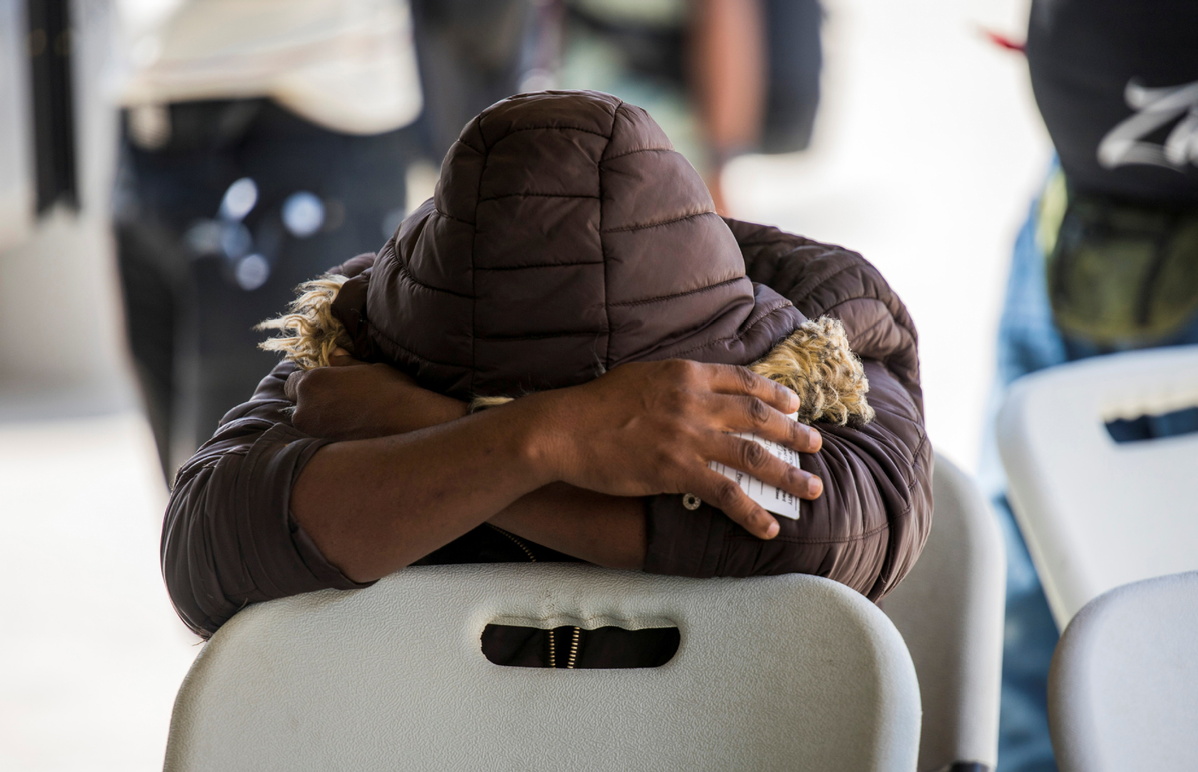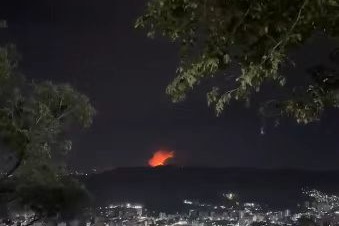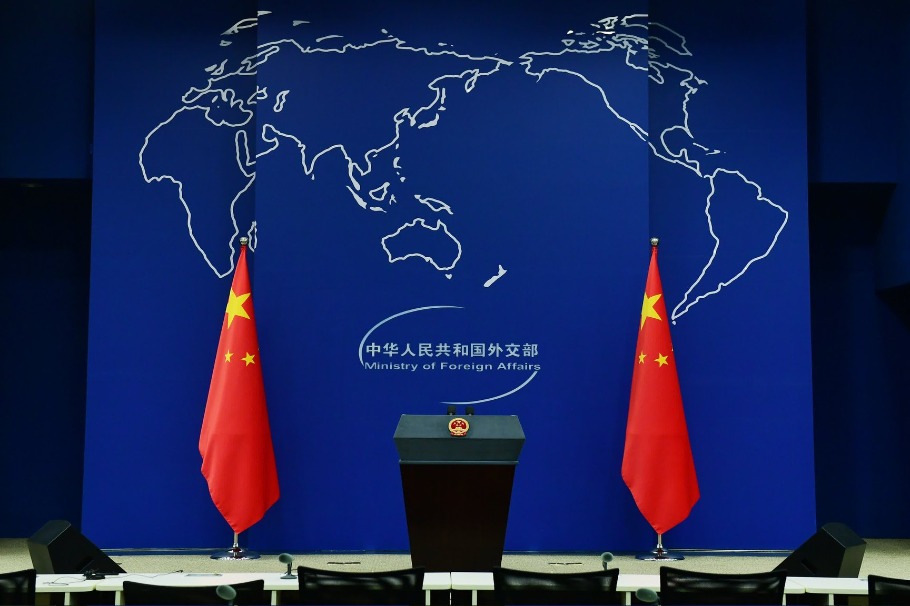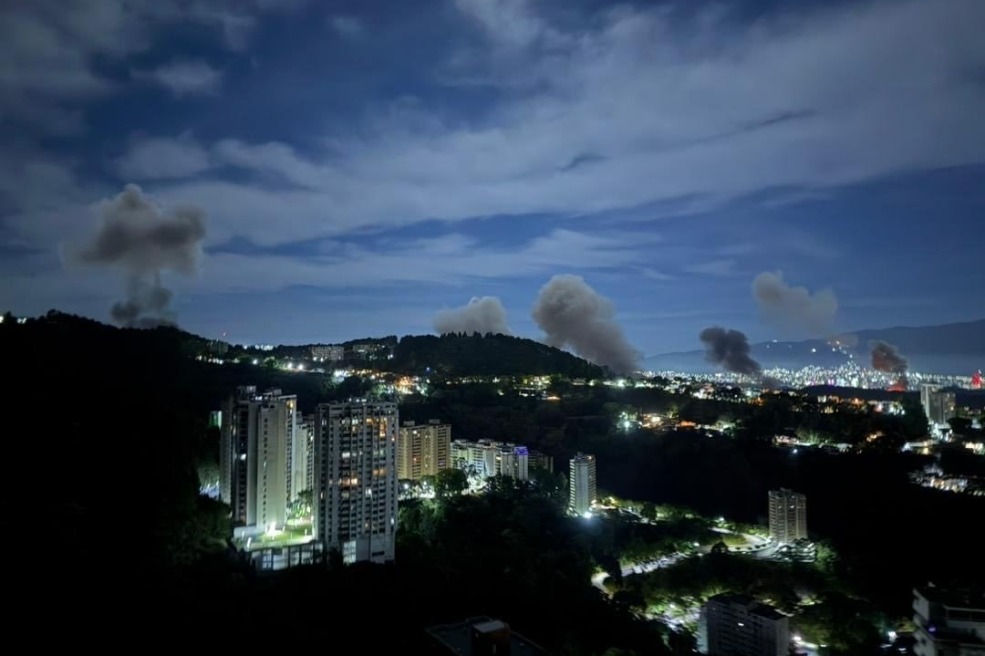Haitian migrants' removal continues amid controversy
By HENG WEILI in New York | China Daily Global | Updated: 2021-09-22 11:01

As the removal of thousands of Haitian and other migrants from a Texas encampment continued on Monday, concerns about their treatment complicated the issue politically.
The migrants have been relocated from the encampment in Del Rio, near the Mexican border, as US Customs and Border Patrol (CBP) officials defended a strong response that included immediately expelling the Haitian migrants to their troubled Caribbean country. The CBP also faced criticism for using horseback patrols to stop the migrants from entering the town.
More than 10,000 Haitian migrants remain in an encampment under the bridge in Del Rio, according to KIII-TV, an ABC affiliate in Corpus Christi, Texas.
Mexico's Foreign Relations Secretary, Marcelo Ebrard, said Tuesday he had spoken with US Secretary of State Antony Blinken about the situation. Ebrard said most of the Haitians already had refugee status in Chile or Brazil, and most weren't seeking it in Mexico.
"What they are asking for is to be allowed to pass freely through Mexico to the United States," Ebrard said.
Mexico also has begun flying and busing migrants from Ciudad Acuna to southern Mexico to relieve pressure on that stretch of the border, according to two Mexican federal officials, The Associated Press reported.
On Monday, US Department of Homeland Security Secretary Alejandro Mayorkas said it was a "challenging and heartbreaking situation" but: "If you come to the United States illegally, you will be returned. Your journey will not succeed, and you will be endangering your life and your family's life."
Jean Claudio Charles, 34, his wife and their 1-year-old son slept on cardboard in a park by the river with 300 others who chose to return to Mexico from the US side, some for fear of being deported and others because of a lack of food.
Charles said he did not want to leave the area, which is gradually becoming a new camp on the Mexican side, for fear of arrests.
"They (Mexican authorities) are grabbing people, they bother us, especially Haitians because they identify us by skin," he told the AP.
Texas Governor Greg Abbott, during a visit to Del Rio on Tuesday, said the state is using law enforcement vehicles to create a "steel barrier preventing people from being able to cross the border. Now that we have sealed this particular area of the border, we have seen migrants try to penetrate other areas of the border," Abbott said.
"They (the Biden administration) have shown no capability of being able to process all of these migrants by the end of the week," said the Republican governor. "The only thing they have shown is an incapability of dealing with this crisis, candidly, in a way where they pretend it doesn't even exist. We're here to tell you, it exists, it's total chaos, and the Biden administration, they need to up their game big time."
Meanwhile, Mayorkas and US Border Patrol Chief Raul Ortiz said Monday they would investigate reports of agents on horseback using what appeared to some to be whips to push back migrants at the river between Acuña and Del Rio, a city of about 35,000 people roughly 145 miles (230 kilometers) west of San Antonio.
The "whips" account has been disputed.
US Representaive Henry Cuellar, a Texas Democrat, said an agent pictured in a widely distributed photo did not carry a whip.
"Again, that incident will be looked at, but again, that's not a whip. That is not a lasso. They do not carry that. That seems to be the reins from the horse itself," Cuellar said Tuesday on CNN.
"You're creating a distinction between swinging a rein at someone verses using a whip. I don't know if, as we heard from the White House, that they make that distinction," CNN anchor Julius Blackwell responded.
"Human beings should never be treated that way, and I'm deeply troubled about it," Vice-President Kamala Harris said Tuesday.
"The images of inhumane treatment of Haitian migrants by Border Patrol … are unacceptable," Senate Majority Leader, a New York Democrat, said on Twitter. "They are fleeing violence and natural disaster and seeking protection in our country."
Mayorkas had said earlier that the Border Patrol chief explained that his horse-mounted agents carried "long reins" to help control the horses.
Later Monday, the Department of Homeland Security issued a statement calling the footage "extremely troubling" and promising a full investigation that would "define the appropriate disciplinary actions to be taken".
Mayorkas said 600 Homeland Security employees, including from the Coast Guard, have been sent to Del Rio. He said he has asked the Defense Department for help in what may be one of the swiftest large-scale expulsions of migrants and refugees from the United States in decades.
He also said the US would increase the pace and capacity of flights to Haiti and other countries in the hemisphere. The number of migrants at the bridge peaked at 14,872 on Saturday, said Brandon Judd, president of the National Border Patrol Council, a labor union that represents agents.
Judd had said earlier on the John Solomon Podcast that the officers' tactics are designed to keep people away from the horses to avoid trampling.
"If they get too close to the horses, the horses could step on them, and they could break bones. They could kick them. They can get kicked in the head. It could cause death," Judd said.
The expulsions were made possible by a 1940s pandemic-related authority, Title 42, adopted by former president Donald Trump in March 2020, which allows for migrants to be immediately removed from the country without an opportunity to seek asylum.
President Joe Biden exempted unaccompanied children from Title 42 but let the rest of the order stand.
Haitians have been migrating to the US in large numbers from South America for several years, many having left their home country after a massive 2010 earthquake. The country that shares the island of Hispaniola with the Dominican Republic also saw its president assassinated in July by foreign mercenaries.
After jobs dried up from the 2016 Summer Olympics in Rio de Janeiro, many Haitian migrants made the dangerous journey by foot, bus and car to the US border, including through the infamous Darien Gap, a Panamanian jungle.
The CBP has experienced almost 209,000 encounters along the southern border in August, according to an agency report.
The Associated Press contributed to this story.
























